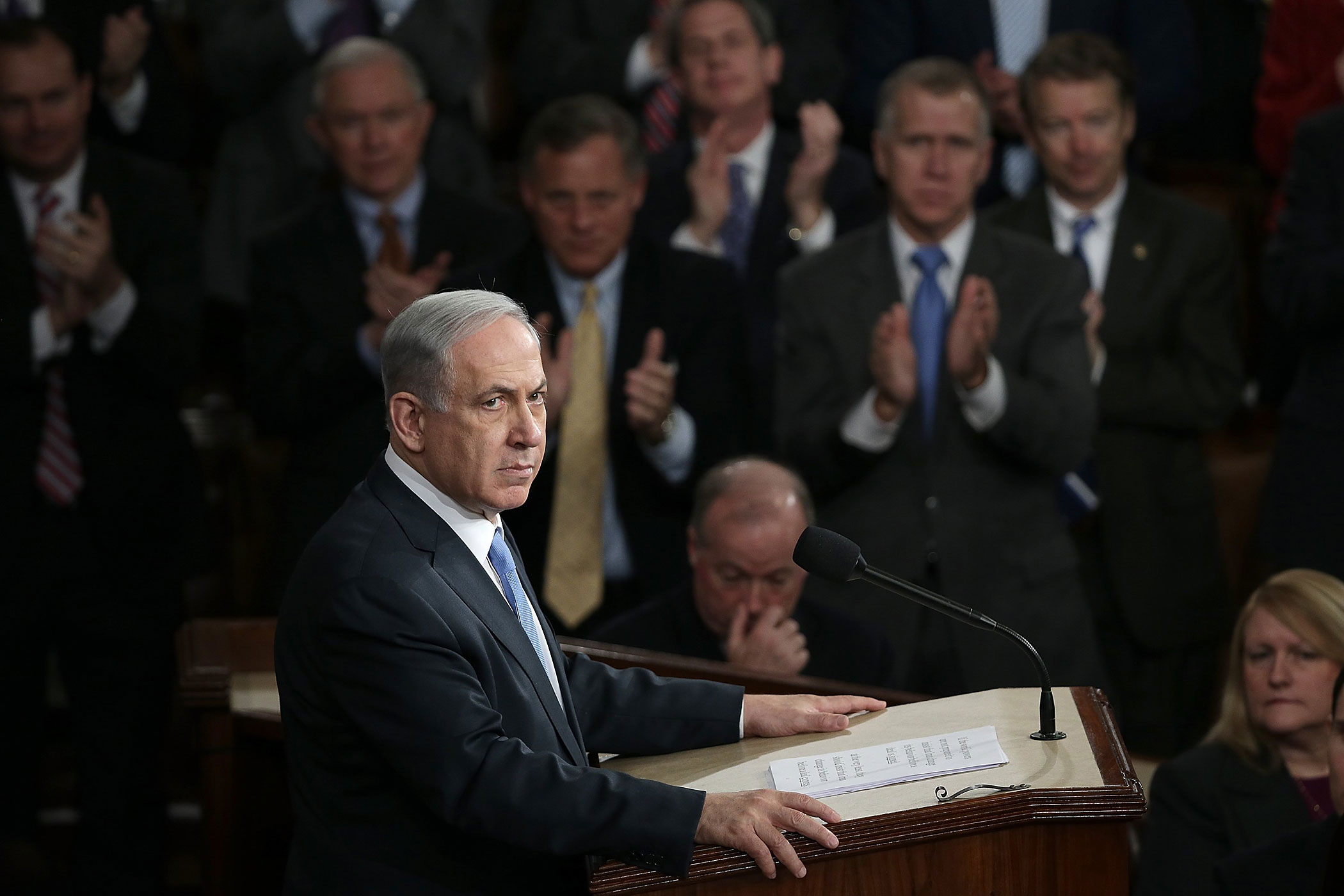
Wednesday night’s holiday of Purim perfectly fits the joking definition of Jewish holidays: “They tried to kill us. We won. Let’s eat.” The narrative of threat and escape is threaded throughout Jewish history and therefore implanted in the Jewish psyche.
Like every Prime Minister before him, Benjamin Netanyahu sees himself not only as the leader of a nation but the bearer of an historical mission, to preserve an embattled nation. This lends a tone of destiny or arrogance, depending on your taste. But one cannot understand his speech without that recognition.
The way the speech came about was maladroit at best, and invidious at worst. Any speech by an Israeli PM that has many Jewish, Israel-supporting congressman boycotting is not well conceived. But now that it has been given, the question is: what about the substance and effect of the PM’s remarks?
Essentially Netanyahu made two solid objections to the deal. The first was the characterization of Iran as fundamentally untrustworthy, genocidal in its intentions toward Israel, and a devouring wolf among the nations through its proxies like Hezbollah. He pointed to the loathsome and unremittingly hostile Twitter feed of the Supreme Leader, insisting on the necessity to destroy Israel, that the Zionists dominate other governments, how hatred of Israel is a sign of God’s favor and help etc. etc. (We know we are in a new world when a formal address by the Prime Minister of one nation quotes the Twitter feed of another.) Here the PM repeated accusations of which many Americans are aware, though he surely colored in the lines. But he spoke the words with the emotional force of a leader whose nation is on the front lines. It is rather as if residents of Texas discovered that Mexico was taken over by an irredentist regime and seeking nuclear weapons. The level of threat awareness is supernally keen. The emotional impact of the speech flowed from Netanyahu’s unforced awareness of Israel’s immediate vulnerabilities.
How venal and untrustworthy is Iran? There is a disagreement here about whether the Iranians have cheated thus far. But the skeptics will claim that the Iranians have not cheated not because they wouldn’t, but because the crafty cheater builds false trust first. An Iranian friend of mine quotes a saying in Farsi that when you cut someone’s throat, you do it with cotton—in other words, slowly, subtly, and so it is barely felt. As the Council on Foreign Relations’ Ray Takeyh has said, Iranian cheating is always incremental, not egregious.
The second significant objection that Netanyahu made was the sunset provision. If the agreement does indeed end in 10 years, then we are merely delaying—and not for very long—the inevitable acquisition of a nuclear weapon. A decade is indeed a blink in the lifetime of a nation; 9/11 was 15 years ago.
As has been noted, Netanyahu did not outline what would be an acceptable deal or how to get there. He did not discuss how to handle sanctions if the other partners of the P5 pull out and undermine the sanctions that are in place. He did not say explicitly what many implicitly assumed, that he would favor a military strike over this deal. But the Israeli argument is that increased sanctions will be more likely to result in the collapse of the Iranian resolve than the collapse of the sanctions regime. We do need other nations, but the U.S. wields a great deal of economic influence, and the world still works in dollars.
Iran is a sophisticated country, an ancient civilization, and larger than the combined land mass of France and Germany. Contemplating an attack on such a nation would make any sane person both wary and pained by the prospect. So Netanyahu does not explicitly mention an attack and both he and the President prefer the euphemism of “all options” being on the table. In this sense however, we can recall admonition of the great chess master Aron Nimzovitch, “the threat is stronger than the execution.” The belief that an attack is possible may be more powerful in ultimately restraining the regime than the messy, dangerous and awful reality of bombing.
In the end, although the address could have been given two weeks later, after the Israeli election, or might have been better and more diplomatically managed, it was an urgent cri du coeur et de l’esprit, cry of the heart and the mind. Along with the invocation of Purim and Divine deliverance with which Netanyahu framed his talk, surely he recalls the talmudic admonition as well: “Do not rely on miracles.”
More Must-Reads from TIME
- Cybersecurity Experts Are Sounding the Alarm on DOGE
- Meet the 2025 Women of the Year
- The Harsh Truth About Disability Inclusion
- Why Do More Young Adults Have Cancer?
- Colman Domingo Leads With Radical Love
- How to Get Better at Doing Things Alone
- Michelle Zauner Stares Down the Darkness
Contact us at letters@time.com